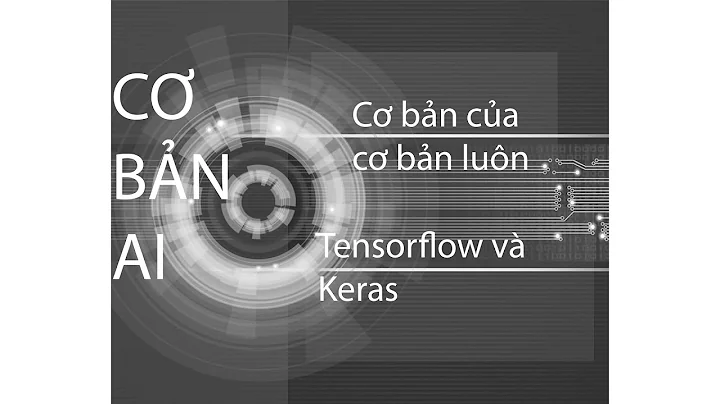Why can't I build a "hello world" for glib?
Solution 1
glib tends to hide itself... Your include statement doesn't work because GCC doesn't automatically search subdirectories, and so cannot see the glib.h in glib-1.2 or glib-2.0.
Read the Compiling GLib Applications page in the GLIB manuals... you use commands like pkg-config --cflags glib-2.0 to get the right flags for GCC.
The canonical way to do what you are trying is
% gcc test.c -Wall -o test `pkg-config --cflags --libs glib-2.0`
Note the back-ticks, which tell the shell to run the pkg-config command "in-place".
Solution 2
> > The canonical way to do what you are trying is
> % gcc test.c -Wall -o test `pkg-config --cflags --libs glib-2.0`
Sorry, but no. That is a common misconception, that just happens to work in most cases on ELF-based systems, Linux in particular. The canonical way is to pass in the cflags and libraries separately, in the correct and traditional locations on the command line, like this:
gcc -Wall -o test `pkg-config --cflags glib-2.0` test.c `pkg-config --libs glib-2.0`
It is a pity that pkg-config accepts both the --cflags and --libs options at the same time, as it means this incorrect meme will never die, and people used to it on Linux will continue to be baffled when they then try the same on other platforms.
Solution 3
As @chris said use pkg-config.
glibconfig.h is missing
it’s because this file is not in the /usr/include/glib-2.0, but in /usr/lib/glib-2.0. So you have to include also this /usr/lib path or copy the file to the /include/glib-2.0
Related videos on Youtube
mike
Updated on March 12, 2020Comments
-
mike about 4 years
So here's the world's simplest glib program:
#include <glib.h>I try to compile it with
gcc test.cand I get:test.c:1:18: error: glib.h: No such file or directorySo I make sure that I have the right packages:
# dpkg -l | grep libglib ii libglib-perl 1:1.183-1 Perl interface to the GLib and GObject libra ii libglib1.2-dev 1.2.10-19build1 The GLib library of C routines (development) ii libglib1.2ldbl 1.2.10-19build1 The GLib library of C routines ii libglib2.0-0 2.20.1-0ubuntu2 The GLib library of C routines ii libglib2.0-cil 2.12.1-1ubuntu2 CLI binding for the GLib utility library 2.1 ii libglib2.0-data 2.18.2-0ubuntu2 Common files for GLib library ii libglib2.0-dev 2.20.1-0ubuntu2 Development files for the GLib library ii libglibmm-2.4-1c2a 2.18.1-1 C++ wrapper for the GLib toolkit (shared libThen I search for any "glib.h" anywhere under /usr/include. I get two, /usr/include/glib-1.2/glib.h and /usr/include/glib-2.0/glib.h. So I try:
$ gcc -I/usr/include/glib-2.0 -Wall test.c In file included from /usr/include/glib-2.0/glib/galloca.h:34, from /usr/include/glib-2.0/glib.h:32, from test.c:2: /usr/include/glib-2.0/glib/gtypes.h:34:24: error: glibconfig.h: No such file or directory(about 10,000 more errors snipped)
I don't seem to have a
glibconfig.hanywhere on my computer.What do I do now?
-
 GManNickG almost 15 yearsMaybe I'm just being silly, but why are you trying to compile a header?
GManNickG almost 15 yearsMaybe I'm just being silly, but why are you trying to compile a header? -
mike almost 15 yearsI started with a more complex program, but if "#include <glib.h>" won't work, nothing will.
-
Yasushi Shoji almost 12 yearsIf you do not have a main function, it will not work. Replacing your
glib.hwithstdio.hdoes not work, either. Assuming you have a main function, a right answer is to usepkg-configas mentioned in other answer. -
Keith Thompson almost 11 years@YasushiShoji:
gcc -c test.cshould work just fine if test.c contains just#include <stdio.h>. It wouldn't hurt to add a second linevoid test(void) { }, but it's not necessary. In the OP's case, the error message would appear regardless of what follows the#include <glib.h>.
-
-
Chris Huang-Leaver over 14 years+1 for bravery! Strictly speaking the name of the source code file should go at the end, after all the options.
-
 tml over 14 yearsSorry, but that is just not true. Have you actually tried doing it that way on some non-Linux platform, for instance MinGW? See for instance gcc.gnu.org/onlinedocs/gcc/Link-Options.html which clearly says "It makes a difference where in the command you write this option; the linker searches and processes libraries and object files in the order they are specified. Thus,
tml over 14 yearsSorry, but that is just not true. Have you actually tried doing it that way on some non-Linux platform, for instance MinGW? See for instance gcc.gnu.org/onlinedocs/gcc/Link-Options.html which clearly says "It makes a difference where in the command you write this option; the linker searches and processes libraries and object files in the order they are specified. Thus,foo.o -lz bar.o' searches libraryz' after file foo.o but before bar.o. If bar.o refers to functions in `z', those functions may not be loaded". -
sam1132 over 12 yearsthe file is provably there, so a Debian-specific package management command is not going to solve the issue. using
pkg-configcorrectly will. -
ntd over 11 yearsThis is not hiding: glibconfig.h is a list of arch dependent data and so does not pertain to /usr/include. It is commonly found under /usr/lib/glib2/...
-
ALM about 7 yearswould you mind putting the " ` " in your code. that had me confused for sometime. granted its my fault for not reading your the rest of your answer, but the code snippet as it is now is inaccurate.
![[Lập Trình x86 Assembly] Bài 3: Hello World](https://i.ytimg.com/vi/gNx2mNIbEWQ/hq720.jpg?sqp=-oaymwEcCNAFEJQDSFXyq4qpAw4IARUAAIhCGAFwAcABBg==&rs=AOn4CLDVGBGggGz7Wl-W-Qgk7qxR_N-UaA)





![[Unit 2] Blink led and Hello world kernel module - Làm quen với Linux driver](https://i.ytimg.com/vi/LQWJ_7SYZd4/hq720.jpg?sqp=-oaymwEcCNAFEJQDSFXyq4qpAw4IARUAAIhCGAFwAcABBg==&rs=AOn4CLCNICoXdjQyXaqoGBe3c9o-7ouUHA)
![[Học Magento 2] Phần 2 Bài 2: Module Hello World](https://i.ytimg.com/vi/uFH2i1wusxY/hq720.jpg?sqp=-oaymwEcCNAFEJQDSFXyq4qpAw4IARUAAIhCGAFwAcABBg==&rs=AOn4CLB3FZlzkqYXT0vo5oly8KC7afu9Hw)

